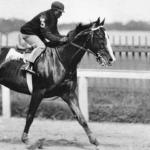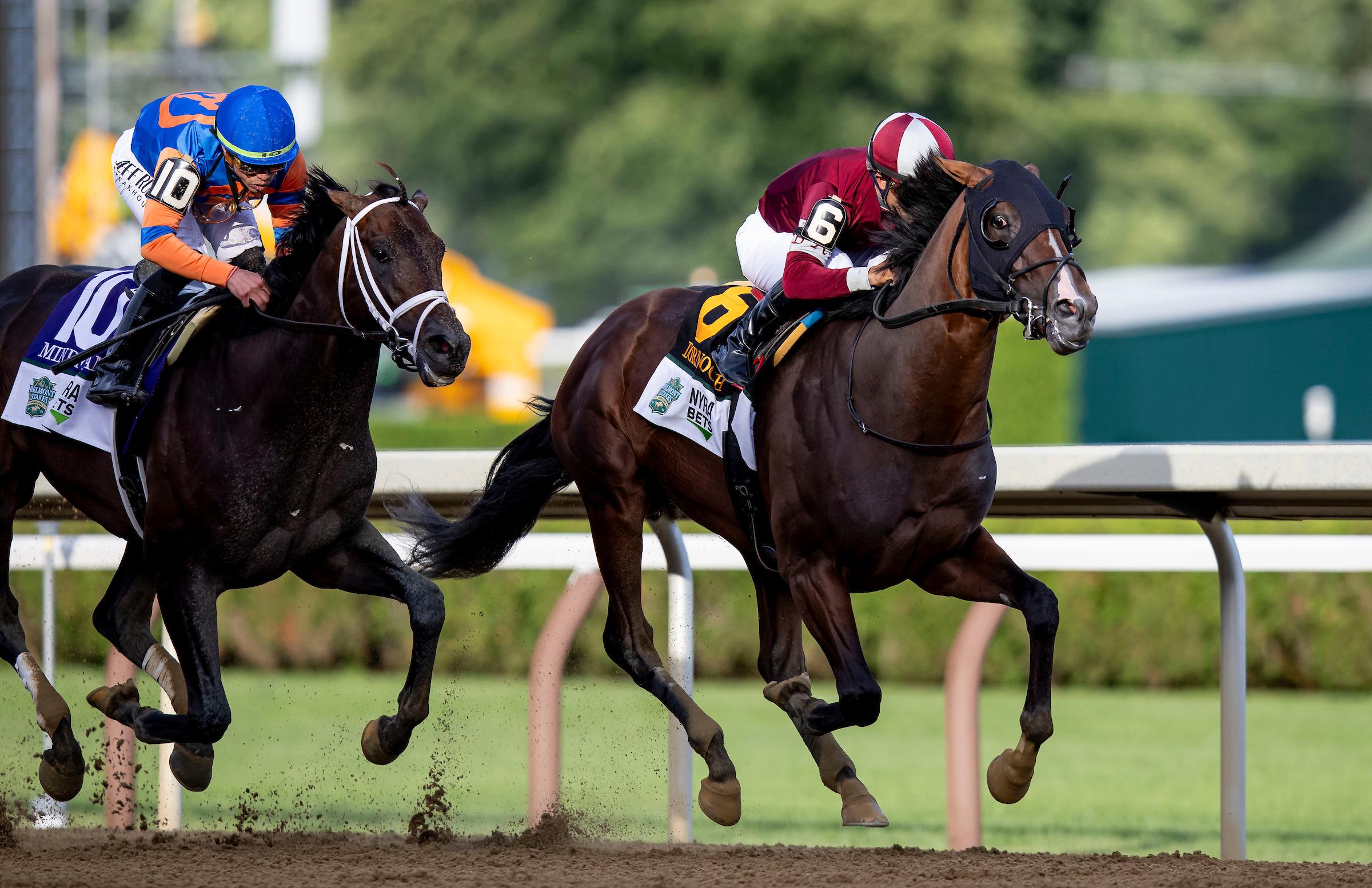
2026 Sam F. Davis Stakes at a Glance

Saturday’s $1 million, Grade 1 NYRA Bets Haskell Stakes at Monmouth Park is one of the most important horse races on the summer calendar.
Obviously, the rich purse is a draw, as is the fact the Haskell awards a “Win and You’re In” berth to the $7 million, Grade 1 Longines Breeders’ Cup Classic via the Breeders’ Cup Challenge Series. But equally important is the Haskell’s status as the first big post-Triple Crown target for top 3-year-old Thoroughbreds. A victory in the Haskell — after competing well in the Triple Crown — can place a horse firmly in the hunt for a year-end championship in the division.
Since the Haskell typically draws a strong field, picking the winner can seem like an imposing task. But dig into the history of the Haskell, and you’ll discover past winners have a lot in common. Finding horses in this year’s field who match the profile of previous winners is a viable strategy to narrow down the contenders and pick the winning horse.
Here are seven tips and trends to aid your handicapping:
Early speed is helpful, but pacesetters rarely win
Horses with some degree of early speed regularly shine in the Haskell, as 15 of the last 20 winners were positioned within 2 1/2 lengths of the lead after the first half-mile.
But this doesn’t mean front-runners dominate. To the contrary, only two Haskell winners in the last 19 years (Authentic and Bayern) led the race after half a mile. Sticking within striking range of the pace is beneficial, but you don’t necessarily want to be the one setting the tempo.
|
Year |
Winner |
Position after first 1/2-mile |
1/2-mile & 3/4-mile (track condition) |
|
2023 |
Geaux Rocket Ride |
4th by 2 lengths (8 starters) |
:47.11, 1:11.65 (fast) |
|
2022 |
Cyberknife |
6th by 4.5 lengths (8 starters) |
:46.96, 1:09.93 (fast) |
|
2021 |
Mandaloun |
4th by 2.5 lengths (7 starters) |
:47.32, 1:10.64 (fast) |
|
2020 |
Authentic |
1st by 1 length (7 starters) |
:47.52, 1:11.50 (fast) |
|
2019 |
Maximum Security |
3rd by 0.5 lengths (6 starters) |
:46.71, 1:10.17 (fast) |
|
2018 |
Good Magic |
2nd by 2.5 lengths (7 starters) |
:46.83, 1:11.48 (fast) |
|
2017 |
Girvin |
7th by 9.25 lengths (7 starters) |
:47.34, 1:11.25 (fast) |
|
2016 |
Exaggerator |
6th by 4.75 lengths (6 starters) |
:46.62, 1:11.00 (sloppy) |
|
2015 |
American Pharoah |
2nd by 1 length (7 starters) |
:46.14, 1:09.60 (fast) |
|
2014 |
Bayern |
1st by 0.5 lengths (9 starters) |
:47.66, 1:11.16 (fast) |
|
2013 |
Verrazano |
2nd by 0.5 lengths (7 starters |
:48.22, 1:12.43 (fast) |
|
2012 |
Paynter |
3rd by 0.5 lengths (6 starters) |
:48.01, 1:11.37 (fast) |
|
2011 |
Coil |
8th by 5.5 lengths (8 starters) |
:47.02, 1:10.68 (fast) |
|
2010 |
Lookin At Lucky |
4th by 2 lengths (7 starters) |
:47.95, 1:12.51 (fast) |
|
2009 |
Rachel Alexandra |
2nd by 0.5 lengths (7 starters) |
:46.43, 1:09.92 (sloppy) |
|
2008 |
Big Brown |
2nd by 1.5 lengths (7 starters) |
:46.59, 1:10.85 (fast) |
|
2007 |
Any Given Saturday |
3rd by 2.5 lengths (7 starters) |
:47.11, 1:10.70 (fast) |
|
2006 |
Bluegrass Cat |
3rd by 4 lengths (9 starters) |
:47.52, 1:11.85 (fast) |
|
2005 |
Roman Ruler |
4th by 1.25 lengths (7 starters) |
:47.72, 1:11.69 (fast) |
|
2004 |
Lion Heart |
1st by 1.5 lengths (8 starters) |
:46.81, 1:10.42 (fast) |
The dominant trainer is Bob Baffert

When Hall of Fame trainer Bob Baffert starts a horse in the Haskell, you can assume that horse will record a top-three finish. Since 2000, Baffert has started 15 horses in the Haskell. Nine of them (60%) finished first, while five (33%) finished second and one (7%) finished third.
However, it’s important to note Baffert’s horses can be divided into two categories with different success rates. Baffert trainees who competed in one or more Triple Crown races (the Kentucky Derby, the Preakness Stakes, and the Belmont Stakes) have gone 6-for-8 (75%) in the Haskell, while the ones who skipped the Triple Crown have gone 3-for-7 (43%).
Triple Crown alumni have an advantage
Expanding on the statistic above, the Haskell is regularly won by horses who competed in one or more of the Triple Crown races. Alumni from the spring classics have won 16 of the last 20 editions of the Haskell, as well as 25 of the last 30.
Avoid betting on sprinters
It’s incredibly uncommon for sprinters who have yet to race one mile or farther to win the Haskell; in fact, every Haskell champion since at least 1981 (as far back as we researched) had previously won racing one mile or farther.
Proven stakes winners dominate

Horses rarely count the Haskell as their first win at the stakes level. Did you know 43 of the last 44 Haskell winners had previously won a stakes race? The only exception in our sample size is Paynter, who won the 2012 Haskell after finishing second by a neck in the Belmont Stakes.
Favorites and short-priced horses run to their odds
Favorites have won 11 of the last 20 editions of the Haskell, accumulating a flashy 55% success rate that is much higher than typically expected for favorites. Six other Haskell winners during that timeframe started as the second choice at odds of 9-2 or less. And going back even further, only three Haskell winners since 1992 have started at odds higher than 9-2, with two of them going off at single-digit odds.
It’s safe to say short-priced horses perform well in the Haskell, and this extends beyond first prize to include the minor awards. During the last two decades, 51 out of 60 horses (85%) who finished third or better in the Haskell started at single-digit odds.
Stoutly bred horses perform best
Horses bred to excel at classic distances are a common presence in the Haskell winner’s circle. It’s a simple statistic: the last 15 Haskell winners were all sired by stallions who competed in a Triple Crown race and/or won a Grade 1 race at 1 1/16 miles or farther. It’s uncommon for pure sprinters to sire Haskell winners, so make sure your Haskell pick boasts a stout pedigree before heading to the betting windows.
Conclusions
A deep field appears to be lining up for the 2024 Haskell. While final entries won’t be drawn until Wednesday, we can draw some conclusions on the most likely winner based off the prospective entries.

Triple Crown alumni are prominent, with Belmont Stakes Presented by NYRA Bets 1-2 finishers Dornoch and Mindframe expected to join reigning champion 2-year-old male Fierceness, who finished 15th as the favorite in the Kentucky Derby Presented by Woodford Reserve. Last year’s Grade 1 Champagne Stakes winner Timberlake further deepens the possible field.
Out of these four, Mindframe (who has yet to win a stakes) and Timberlake (who skipped the Triple Crown) have meaningful chinks in their armor. But the profiles of Dornoch and Fierceness are difficult to split from a historical perspective. They each have tactical speed, are bred to handle the Haskell distance, and figure to start at short prices.
If there’s one detail that could tip the scales, it’s the fact the post-time favorite has prevailed in 11 of the last 20 editions of the Haskell. While we’ll have to wait and see how the Haskell betting unfolds before drawing any conclusions on this front, there’s a good chance Fierceness will attract the most attention, with bettors forgiving his Kentucky Derby misfire and choosing instead to recall his blowout victories in the Grade 1 Curlin Florida Derby Presented by Hill ‘n’ Dale Farms at Xalapa and Grade 1 FanDuel Breeders’ Cup Juvenile Presented by Thoroughbred Aftercare Alliance.
If this proves to be the case, then Fierceness ranks as the most likely Haskell winner from a historical perspective.
Good luck, and enjoy the race!